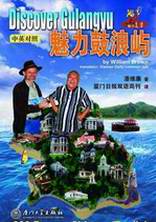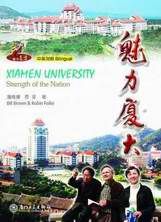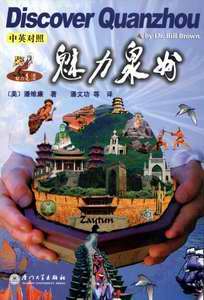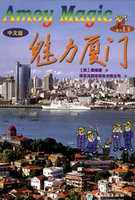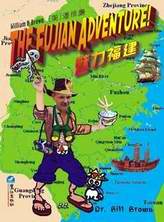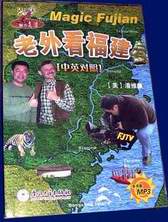![]() Click
to
Access
Click
to
Access
AMOY MAGIC SITE from
OUTSIDE China
![]() Click
to Access Amoy
Magic Site from
Click
to Access Amoy
Magic Site from
INSIDE
China ![]()
TRAVEL
LINKS
![]() Xiamen
Xiamen
![]() Gulangyu
Gulangyu
![]() Jimei
Jimei
![]() Tong'an
Tong'an
![]() Jinmen
Jinmen
![]() Zhangzhou
Zhangzhou
![]() Quanzhou
Quanzhou
![]() Wuyi
Wuyi
![]() #1Fujian
Sites!
#1Fujian
Sites!
![]() Fujian
Foto Album
Fujian
Foto Album
![]() Books
on Fujian
Books
on Fujian
![]() Readers'Letters
Readers'Letters
![]() Ningde
Ningde
![]() Zhouning
Zhouning
![]() Longyan
Longyan
![]() Sanming
Sanming
![]() Putian
Putian
![]() Bridges
Bridges
![]() Travel
Info,
Travel
Info,
![]() Hakka
Roundhouses
Hakka
Roundhouses
![]() Travel
Agents
Travel
Agents
MISC. LINKS
![]() Amoy
People!
Amoy
People! ![]()
![]() Darwin
Driving
Darwin
Driving ![]()
![]() Amoy
Tigers
Amoy
Tigers
![]() Chinese
Inventions
Chinese
Inventions
![]() Tibet
in 80 Days
Tibet
in 80 Days![]()
![]() Amoy
Vampires!
Amoy
Vampires!
![]() Dethroned!
Dethroned!
![]()
![]() Misc.Writings
Misc.Writings
![]() Latest
News
Latest
News
![]() Lord
of Opium
Lord
of Opium
![]() Back
to Main Page
Back
to Main Page
Copyright 2001-7 by Sue Brown & Dr.
Bill ![]() Order
Books
Order
Books
Note:
Please click thumbnails
for larger photos!!
![]() Amoy
Hill's Photos
Amoy
Hill's Photos![]()
![]() AmoyMission-1893
AmoyMission-1893
NARRATIVE OF EXPLORATORY VISIT TO CONSULAR CITIES OF CHINA
(1844, 1845, 1846)
BY
REV. GEORGE SMITH, 1857 Scanned
by Dr. Bill Brown
![]() Chap
25 Departure to Amoy
Chap
25 Departure to Amoy ![]() Chap
26 Daily Occurrences at Amoy
Chap
26 Daily Occurrences at Amoy
![]() Chap
27 New Year Festivities
Chap
27 New Year Festivities ![]() Chap
28 Visit Amoy High Mandarins
Chap
28 Visit Amoy High Mandarins
![]() Chap
29 Prevalance of Opium Smoking
Chap
29 Prevalance of Opium Smoking ![]() Chap
30 Female Infanticide
Chap
30 Female Infanticide
![]() Chap
31 Daily Incidents at Amoy Cont'd
Chap
31 Daily Incidents at Amoy Cont'd ![]() Chap
32 Mandarins Entertain Missionaries
Chap
32 Mandarins Entertain Missionaries
![]() Chap
33 General Description of Amoy
Chap
33 General Description of Amoy ![]() Chap
34 Depart Amoy for Canton; Opium Problem
Chap
34 Depart Amoy for Canton; Opium Problem
CHAPTER
XXVI Daily Occurrences at Amoy
Interview with the ¡°Hai-hong, Large Collection of Ancestral Tablets,
Idol Shops, Friendliness of People, Missionary Services, Regular Attendants,
Services for Chinese Females.
Jan. 16th.-THE friendly intercourse
held by the missionaries with the Chinese authorities at Amoy encouraged
me to pay 8 visit to the hai-hong, the principal officer in municipal
matters, whose jurisdiction, similar to that of a lord mayor, extended
over the city and island of Amoy. His predecessor, whom he succeeded a
few months ago, was a man of very liberal views, and sometimes visited
the missionaries without any ceremony or state, on which occasions he
used to take their children on his knee, and play with them in the most
friendly manner. The present hai-hong possessed a large measure of his
predecessor's liberal views and popular manners, and was at all times
accessible. We walked over some rugged, rising ground near the beach,
covered with tombs, the masonry of which was in some cases dilapidated
through age, so as to expose the decayed coffins to view. We soon arrived
at the suburban hamlet of Ha-mun-ka, in which the hai-hong's residence
is situated. A couple of long open courts and some flights of steps conducted
us at length to the reception rooms and large open halls at the end of
a raised area. The hai-hong had just gone to transact some official business
with the other mandarins at the te-tok's palace within the city, and,
according to annual custom, to seal up the public books and documents,
for the purpose of terminating all business during the period of the new-year
holydays, which lasted from this, the 19th day of the twelfth moon, to
the 20th day of the first moon. Two of his secretaries received us, and
conducted us into a little room on the right, where they entertained us
with tea and oranges, and continued questioning us for half an hour, till
the usual discharge of guns and beating of gongs announced the approach
of the hai-bong himself on his return home. Our cards, inscribed with
our Chinese names, having been first sent in according to due form, an
attendant returned to usher us into the large reception-hall.
Here the hai-hong himself, wearing his cap, surmounted by a crystal button,
and adorned with a peacock's feather behind, with ornaments of necklaces,
and embroidery on his breast, advanced to welcome us. He shook hands with
us, and addressed us separately by our names, affixing to each the appellation
of "teacher." He placed himself at the lowest seat, and as we
sipped tea together, with about twenty attendants standing around, various
questions passed between him and the two American missionaries by whom
I was accompanied. A subordinate officer interpreted between them, as
the missionaries understood only the local dialect, and the hai-hong spoke
the Peking or court dialect. Occasionally a few words, in the court dialect,
passed between the hai-hong and myself. Hearing that I was a hung maou
seen-sang, "an English teacher," he asked if I was a le pai
seen-sang, "a religious teacher." I replied that I was a chuen
keaou, "a propagator of religion," and asked if our objects
in coming to the Central Kingdom met his approbation? He replied, that
as we had come in order to teach men to act virtuously, our object was
good and benevolent, and he could not therefore but highly approve of
it.
During the rest of the interview, he took frequent occasion to commend
our work, though he did not go so far as his predecessor in office, who
once expressed his hope to Mr. Abeel that the missionaries would convert
the people to Christianity, as they would then become more loyal subjects.
The present of a Christian almanac led to an examination of the maps,
and to many questions about England and her possessions. He especially
asked where India (Yintoo) was situated. He then inquired how long I had
been in China, what amount of time I had devoted to Chinese studies, and
what parts of the coast I had visited? He then asked to which of the five
ports I gave the preference, and whether I liked Fo-keen province as well
as Che-keang? In the course of my reply I took an opportunity of acquainting
him that my friends were Americans, and I myself was an Englishman; but
that the doctrines which we professed in common made all nations brethren
and friends. This led to renewed professions of admiration of our religion,
and the statement of his wish to be included among the number of our friends.
He expressed his hope that, if we wanted any favor, we would not hesitate
to convey our wishes to him, and intimated to us that he, also, on his
part, should place similar confidence in our willingness to confer acts
of kindness on himself. This sounded rather strange to me at the time,
but received explanation from the fact, of which I was afterward informed,
that the Chinese authorities sometimes send a private messenger to the
missionaries for information on various matters affecting their intercourse
with foreigners. An instance of this kind lately occurred on the visit
of the French ambassador to a city forty miles in the interior, by which
the jealous surmises were excited. Their suspicions were removed by the
information of the missionaries, who, in reply to the official messenger,
stated their opinion that the French were uninfluenced by any sinister
designs, and actuated by no other motive than curiosity. The presence
of a body of men, whose knowledge of the language enables them to hold
free communication with the Chinese, and whose objects form to the mandarins
a guaranty for their integrity, can not be regarded otherwise than as
an advantage even to the secular interests of Europeans.
After making some inquiries from the two missionaries respecting a barometer
and a telescope, which he had commissioned them to purchase for him, and
expressing some strange notions on the subject of land-mists and sea-mists,
he exchanged a few words, in a low tone of voice, with an attendant. The
latter, watching his opportunity, whispered into the ear of one of our
party that the hai-hong had a number of persons outside waiting for him
to transact some important business. This hint induced us to hasten our
departure, amid the greetings of the hai-hong, who accompanied us to the
outer court. Here we found about a hundred officers, police-runners, and
lictors, regularly drawn up in files, awaiting his exit. As we passed
out of the courts into the neighboring street, our ears were greeted with
the sounds of pipes and drums, which form the usual salute to visitors
at the houses of the great.
We proceeded thence along the broad causeway, by which the victorious
British troops advanced toward the citadel on the capture of Amoy. It
had some old triumphal arches and gates, with some temples on either side
of the road. We entered into one of these temples, which had no idols,
but was completely filled with rows of ancestral tablets, altogether amounting
to about three thousand in number. It had been recently erected by the
public subscriptions of the officers and people, and was intended to commemorate
the unfortunate multitudes who had been swept away by a fearful inundation
in the neighborhood. This disastrous occurrence took place in the year
1842, when whole villages were swept away from the vale of Chang-chew
on the opposite mainland. Hundreds of bodies were washed down the river,
and carried out into the sea by the current. Numbers were also borne alongside
the British vessels of war then lying on the other side of Koo-lang-soo.
This building was erected to receive the ancestral tablets of those families
which had perished in the common disaster. Many of the tablets had been
carried away, together with the temples which contained them, by the all-destroying
force of the waters. Such of the tablets as had been recovered from the
general destruction were carefully placed together in this temple, erected
for the purpose. In the inscription above the entrance we behold as positive
a proof as could be required of the direct worship paid to departed spirits,
and the real demonolatry of the Chinese¡ªYew kew peih ying, "Those
who pray will of necessity obtain? a response," tantamount to the
words of Scripture, Ask and ye shall receive. Each tablet was inscribed
with the number of generations through which the family was traced¡ªsome
thirteen, some fourteen, and others seventeen. Although a Chinese regards
with superstitious, and even idolatrous veneration, the ancestral tablets
of his own family, he does not extend the same feelings of reverential
awe to those of other families. It is not uncommon for them to place the
tablets of obsolete or extinct families in some little spot, with an idol
presiding as a protector. They will, however, suffer them to be removed,
and sometimes even encourage their removal by anyone whose curiosity may
prompt to the act, and who will not wantonly injure them. A Chinese of
my acquaintance readily volunteered to procure me a couple of tablets
from this temple. He seemed to consider them as common property, and their
removal to involve no act of desecration or dishonesty, as the original
owners had no longer any representatives.
In one of the narrow streets we entered an idol shop, where idols of every
pattern and quality were procurable, the prices varying from several dollars
each to the low sum of six cash, equal to about one farthing. The licensed
permission of the mandarins to pursue the vocation of idol-making was
visibly depicted on a sign-board in the shop. On another board was a notice
that precious Budhhas were there manufactured or repaired. A large number
of idols, of every shape and in every stage of manufacture, were lying
around. Another idol-manufactory had the sign suspended over the door,
"The Golden Budha Shop."
THE FRIENDLINESS OF
THE PEOPLE
These shops were to be seen at every quarter of a mile, and presented
groups of images, some black with age and sent hither for regilding, and
others gaudily painted and finished from the hand of the artist. Some
had stern visages; some wore the expression of pleasure; and all looked
exceedingly grotesque. The people outside would readily enter into the
subject, and laugh heartily as the missionary pointed out to them the
unreasonable character of worship paid to such divinities.
The people every where showed the same polite attentions and friendly
disposition; and, although the missionaries spoke boldly their sentiments
on idolatry, they did not appear to excite any ill-will. Mistakes at the
commencement of the mission were sometimes made by the people, as to the
objects and motives of missionaries. A Chinese came, soon after their
first arrival, and proposed to one of them to effect an expulsion of the
present Tartar dynasty, which he demonstrated to be perfectly easy, if
they would only bring 4000 men to Amoy, to assist in carrying out his
plan! As we passed along the street, in the immediate vicinity of the
residences of the missionaries, the frequent salutation greeted our ears,
"Have you eaten rice to-day?" ¡°Have you eaten to the full?"
A special degree of interest seemed to be produced on their minds by the
arrival of a new teacher; and whenever I walked alone through these streets
they endeavored, in their simple manner, to make me welcome by many acts
of politeness and good humored remarks, the meaning of which I could better
understand by their looks than by their language. The rope-makers, who
thronged some of the streets, generally called out to me as I endeavored
to pass under the lines across the street, and stopped their work that
I might be enabled to cross over without having to stoop.
Jan. 1st (Sunday).-A description of the missionary services
of this day will give an idea of the usual course of Sabbath duties at
Amoy. At 9 A.M. a Chinese service was held at each of the two missionary
chapels, one of which belonged to the American Board of Foreign Missions,
and the other to the London Missionary Society. They were commodiously
situated among the population, having been rented at a moderate annual
sum, and converted, at a small expense, from trading hongs, or warehouses,
into chapels capable of holding one hundred and fifty persons, with movable
benches for seats. At 10 A.M. a missionary service was held among the
Chinese at the hospital by the medical missionary who presided over the
institution. At 11 A.M. an English service was held at the house of one
of the missionaries, at which two or three other Europeans sometimes were
present. At 3 P.M. another Chinese service was held at the two chapels.
Besides these services on Sundays, the missionaries generally visited
one of the chapels every afternoon, for the purpose of conversing with
those whom curiosity might induce to enter. These after-noon visits were
intermitted on those days on which they had a Chinese Bible class at their
own houses for their teachers, domestics, and constant hearers. On one
after-noon in the week there was also a special meeting for women, at
the house of the only married missionary, whose wife survived and was
able to remain at Amoy. She frequently received visits from her female
neighbors, and had continual access to their houses; by which friendly
intercourse many prejudices were removed, and their confidence was gained.
At the first public service which I attended the missionary who officiated
addressed about fifty Chinese, drawing his comparisons and illustrations
from the customs of the approaching new year. He remarked on the scrupulous
care with which they settled their accounts, prepared their garments,
and made other arrangements for a suitable observance of the holyday.
He drew an argument from this their excessive care in unimportant concerns
to the greatness of their moral responsibility in the higher matter of
preparing to meet their God, and using every effort to secure the salvation
of their immortal souls. The regular attendants were very attentive, and
listened in silence. The newcomers were much less reverent, and sometimes
interrupted the preacher with remarks or questions. One elderly gentleman,
attired in a silk gown, entered the room, bowing and nodding to the preacher
and the other persons present whom he happened to recognize as he was
conducted by a Chinese, who acted as a sexton, to a bench near the place
where I was sitting. The old man frequently gave vent to a half-suppressed
laugh as the missionary laid open to view the interior scenes and detailed
preparations of Chinese families in the prospect of the approaching festival.
Again the old man's countenance became grave, and his looks bespoke deep
attention, till some pointed remark or happy allusion again drew forth
a stifled laugh or an audibly expressed commendation. After the sermon
a middle-aged Chinese, of rather shabby exterior, went round and tried
to sound our breasts, for the purpose of listening whether our hearts
were good or wicked. He made many comments after each experiment, in a
way which left doubt whether to regard him as a person of weak mind or
eccentric wit, On a previous occasion he once interrupted the preacher
for several minutes, in the midst of his sermon, standing up and making
a lengthened harangue to those present, in order to prove to them that
all this attention and concern respecting the future was unnecessary,
and that the best way to happiness was to banish all care and thought
about such matters from the mind, At the hospital all the Chinese kneeled
down during the prayer. In the chapels, where the congregations consisted
of a mixed class of hearers, those only who had been regular in their
attendance were observed to kneel. About twenty-five Chinese in all had
been for some time under instruction, and came nearly every day to the
missionaries. Two of these were old men, who had been four years under
a course of daily instruction. Their baptism had been deferred so long,
possibly even from an excess of caution unwarranted by scriptural examples,
but, nevertheless, under the strong conviction that, in the present circumstances
of the mission, delay was far preferable to a premature admission of converts,
which, though it might increase the number of professing Christians, was
calculated also to lower the standard of spiritual religion in the eyes
of the heathen.
The most regular attendants on the services were the following individuals,
many of whom (as will be perceived) were those who, from their situation
or employment, were in some measure dependent on the missionaries, and
whose sincerity might, on that account, be exposed to suspicion. There
were the two old men, who were soon to be admitted to baptism, Hok que-peh
and Un sea-pai, both of whom keep small shops, and rigidly abstain from
trade and other secular business on the Sabbath. There was also a rich
old merchant, engaged in the tea trade with Canton, whose son had been
advanced to the literary degree of keu-jin, and was then at Peking, waiting
for political preferment. The old gentleman was generally known by the
title of ta-laau-yay, or "his lordship," this being a title
of salutation given to mandarins of some of the intermediate ranks, and
also conferred by conventional usage on the fathers of the higher classes
of literary graduates. China is probably the only country in the world
where a son can thus, by his own individual merits, ennoble a father with
a title of honor. Another, also, of the daily hearers, was an old, reclaimed
opium-smoker, named Lim-pai, who subsisted on his own small independent
means, and passed a great deal of his time in the society of the missionaries,
according to his own professions, in order to avoid the ensnaring influence
of his former boon-companions, and to be removed out of the way of temptation.
Among the regular attendants there were also two old men, nearly blind,
named-Ma sing-hea and Shwui lo, the latter being a keeper of one of the
chapels, in an upper room of which he resided. Another old man, Ban hea,
who was formerly inclined to embrace the Roman Catholic religion, but
was deterred by fear of persecution, was also a consistant visitor of
the missionaries. Among the middle-aged and younger men were Khey cheong,
a manufacturer of idol-paper for offerings, who professed to be troubled
in conscience at the sinfulness of his calling, and wished to change his
trade; Hok ha, a ropemaker of very promising character; Ching han, a medical
student attached to the missionary hospital; and An jean, a leper who
had been for some time a patient in the hospital. There were also the
six teachers of the missionaries, two of them being graduates of the first
or lowest degree. All of the teachers appeared to be intellectually well
acquainted with the doctrines of Christianity, and assented to the excellence
and truth of the Gospel. One of them, Tan seen-sang, after receiving preparatory
instruction from a missionary during the morning, frequently accompanied
him in the afternoon to the chapel and to other places, where he took
his turn in addressing the assembled Chinese. Of the expediency of this
course different persons may possibly take opposite views: much, however,
depends on the wisdom and judgment exercised by the individual missionary
on such occasions. There were also eleven other Chinese attached to the
families of missionaries, or to the hospital, whose daily opportunities
had enabled them to gain an insight into the more prominent doctrines
of Christianity, but who had not yet shown any decided proofs of a change
of heart. All these persons had ceased to worship idols; but, with the
exception of the two old men about to be admitted to baptism, they had
not generally adopted the decided course of expelling the images from
their household. The old ta laou-yay adopted the custom of burning incense
sticks on a household altar, from which he had recently expelled the idol
and on which he said that he offered incense to the one true God. Notwithstanding
the frequent censures of the missionaries on this part of his conduct,
he still availed himself of every opportunity of attending the services,
and might be seen every day at one of the chapels, with his Chinese Testament
and hymnbook. He sometimes expressed a desire to be baptized, and appeared
to be sincerely convinced of the? superiority of the Christian religion;
but his self-righteous views, and love of the material worship of incense,
pointed him out as on the broad road to Popery, whenever he might be brought
into contact with a ritual form of worship so studiously addressed to
the senses and the imagination. The largest attendance which I witnessed
at either of the chapels was about one hundred.
At the religious meetings for women, men were not generally admitted:
on one or two occasions, however, I was present. A missionary and his
wife, with one Chinese teacher and about twenty women, formed our little
assembly. The teacher addressed them with much animation, and the missionary
concluded with a suitable prayer, during which all knelt. At the close,
the women made remarks on the doctrines being good; and after some further
conversation, and taking tea together, departed to their homes.
The initials
L. M. S. = London Missionary Society.
A. B. C. F. M. = American Board for Conduction Foreign Missions
A. B. B. F. M. = American Baptist Board for Conducting Foreign Missions.
Am. Ep. Ch. = American Episcopal Church
A. G. A. B. = American General Assembly¡¯s Board
C. M. S. = Church (of England) Missionary Society
E. B. M. S. = English Baptist Missionary Society.
A Narrative of an Exploratory Visit to each of the Consular Cities of
China, and to the Islands of Hong Kong and Chusan, in Behalf of the Church
Missionary Society, in the years 1844, 1845, 1846, by the Rev. George
Smith, M.A., of Magdalen Hall, Oxford, and Late Missionary in China
New York, Harper and Brothers Publishers, 52 Cliff Street, 1847
Scanned by Dr.
Bill Brown Xiamen University MBA Center
Please
Help the "The Amoy Mission Project!"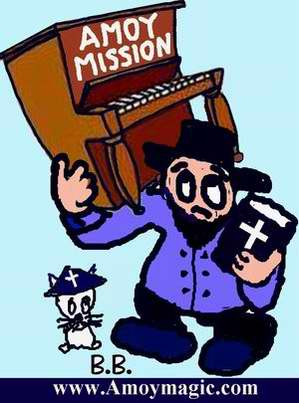 Please
share any relevant biographical material and photos for the website and
upcoming book. All text and photos will remain your property, and
photos will be imprinted to prevent unauthorized use.
Please
share any relevant biographical material and photos for the website and
upcoming book. All text and photos will remain your property, and
photos will be imprinted to prevent unauthorized use.
E-mail: amoybill@gmail.com
Snail Mail: Dr. William Brown
Box 1288 Xiamen University, Xiamen, Fujian PRC 361005
![]() Favorite
Fujian Sites
Favorite
Fujian Sites ![]() Fujian
Foto Album
Fujian
Foto Album ![]() Xiamen
Xiamen
![]() Gulangyu
Gulangyu
![]() Fujian
Guides
Fujian
Guides ![]() Quanzhou
Quanzhou
![]() Zhangzhou
Zhangzhou
![]() Longyan
Longyan
![]() Wuyi
Mtn
Wuyi
Mtn ![]() Ningde
Ningde
![]() Putian
Putian
![]() Sanming
Sanming
![]() Zhouning
Zhouning
![]() Taimu
Mtn.
Taimu
Mtn. ![]() Roundhouses
Roundhouses
![]() Bridges
Bridges
![]() Jiangxi
Jiangxi
![]() Guilin
Guilin
![]() Order
Books
Order
Books![]() Readers'
Letters New: Amoy
Vampires! Google
Search
Readers'
Letters New: Amoy
Vampires! Google
Search
Last Updated: October 2007
AMOY
MISSION LINKS
![]()
![]() A.M.
Main Menu
A.M.
Main Menu
![]() RCA
Miss'ry List
RCA
Miss'ry List
![]() AmoyMission-1877
AmoyMission-1877
![]() AmoyMission-1893
AmoyMission-1893
![]() Abeel,
David
Abeel,
David
![]() Beltman
Beltman
![]() Boot
Family
Boot
Family
![]() Broekema,
Ruth
Broekema,
Ruth
![]() Bruce,
Elizabeth
Bruce,
Elizabeth
![]() Burns,
Wm.
Burns,
Wm.
![]() Caldwells
Caldwells
![]() DePree
DePree
![]() Develder,
Wally
Develder,
Wally
![]() Wally's
Memoirs!
Wally's
Memoirs!
![]() Douglas,
Carstairs
Douglas,
Carstairs
![]() Doty,
Elihu
Doty,
Elihu
![]() Duryea,
Wm. Rankin
Duryea,
Wm. Rankin
![]() Esther,Joe
& Marion
Esther,Joe
& Marion
![]() Green,
Katherine
Green,
Katherine
![]() Gutzlaff,
Karl
Gutzlaff,
Karl
![]() Hills,Jack
& Joann
Hills,Jack
& Joann
. ![]() Hill's
Photos.80+
Hill's
Photos.80+
..![]() Keith
H.
Keith
H.![]() Homeschool
Homeschool
![]() Hofstras
Hofstras
![]() Holkeboer,
Tena
Holkeboer,
Tena
![]() Holleman,
M.D.
Holleman,
M.D.
![]() Hope
Hospital
Hope
Hospital
![]() Johnston
Bio
Johnston
Bio
![]() Joralmans
Joralmans
![]() Karsen,
W&R
Karsen,
W&R
![]() Koeppes,
Edwin&Eliz.
Koeppes,
Edwin&Eliz.
![]() Kip,
Leonard W.
Kip,
Leonard W.
![]() Meer
Wm. Vander
Meer
Wm. Vander
![]() Morrison,
Margaret
Morrison,
Margaret
![]() Muilenbergs
Muilenbergs
![]() Neinhuis,
Jean
Neinhuis,
Jean
![]() Oltman,
M.D.
Oltman,
M.D.
![]() Ostrum,
Alvin
Ostrum,
Alvin
![]() Otte,M.D.
Otte,M.D.![]() Last
Days
Last
Days
![]() Platz,
Jessie
Platz,
Jessie
![]() Pohlman,
W. J.
Pohlman,
W. J.
![]() Poppen,
H.& D.
Poppen,
H.& D.
![]() Rapalje,
Daniel
Rapalje,
Daniel
![]() Renskers
Renskers
![]() Talmage,
J.V.N.
Talmage,
J.V.N.
![]() Talman,
Dr.
Talman,
Dr.
![]() Veenschotens
Veenschotens
. ![]() Henry
V.
Henry
V.![]() Stella
V.
Stella
V.
. ![]() Girard
V.
Girard
V.
![]() Veldman,
J.
Veldman,
J.
![]() Voskuil,
H & M
Voskuil,
H & M
![]() Walvoord
Walvoord
![]() Warnshuis,
A.L.
Warnshuis,
A.L.
![]() Zwemer,
Nellie
Zwemer,
Nellie
![]() Fuh-chau
Cemetery
Fuh-chau
Cemetery
![]() City
of Springs
City
of Springs
(Quanzhou, 1902!!)
![]() XM
Churches
XM
Churches ![]()
![]() Church
History
Church
History ![]()
![]() Opium
Wars
Opium
Wars
![]() A.M.
Bibliography
A.M.
Bibliography
![]() YMCA
Volunteer!
YMCA
Volunteer!
![]() XICF
Fellowship
XICF
Fellowship![]()
![]() Temples
Temples![]()
![]() Mosques
Mosques
![]() Christ
in Chinese
Christ
in Chinese
Artists'
Eyes
DAILY LINKS
![]() FAQs
Questions?
FAQs
Questions?
![]() Real
Estate
Real
Estate
![]() Shopping
Shopping
![]() Maps
Maps
![]() Bookstores
Bookstores
![]() Trains
Trains
![]() Busses
Busses
![]() Car
Rental
Car
Rental
![]() Hotels
Hotels
![]() News
(CT)
News
(CT)
![]() Medical
& Dental
Medical
& Dental
![]() Expat
Groups
Expat
Groups
![]() Maids
Maids
![]() Phone
#s
Phone
#s
EDUCATION
![]() Xiamen
University
Xiamen
University
![]() XIS(Int'l
School)
XIS(Int'l
School)
![]() Study
Mandarin
Study
Mandarin
![]() CSP(China
Studies)
CSP(China
Studies)
![]() Library
Library
![]() Museums
Museums
![]() History
History
DINING ![]() Tea
Houses
Tea
Houses
![]() Restaurants
Restaurants
![]() Asian
Asian
![]() Veggie
Veggie
![]() Junk
Food
Junk
Food
![]() Chinese
Chinese
![]() Italian
Italian
![]() International
International![]()
![]() Visas
4 aliens
Visas
4 aliens
RECREATION
![]() Massage!
Massage!
![]() Beaches
Beaches
![]() Fly
Kites
Fly
Kites
![]() Sports
Sports
![]() Boardwalk
Boardwalk
![]() Parks
Parks
![]() Pets
Pets
![]() Birdwatching
Birdwatching
![]() Kung
Fu
Kung
Fu ![]() Hiking
Hiking
![]() Music
Events
Music
Events
![]() Cinema
Cinema
![]() Festival&Culture
Festival&Culture
![]() Humor&
Humor&![]() Fun
Fotos
Fun
Fotos![]()
BUSINESS
![]() Doing
Business
Doing
Business
![]() Jobs!(teach/work)
Jobs!(teach/work)
![]() Hire
Workers
Hire
Workers
![]() Foreign
Companies
Foreign
Companies
![]() CIFIT
(Trade Fair)
CIFIT
(Trade Fair)
![]() MTS(Translation)
MTS(Translation)
![]()
Back to Top
